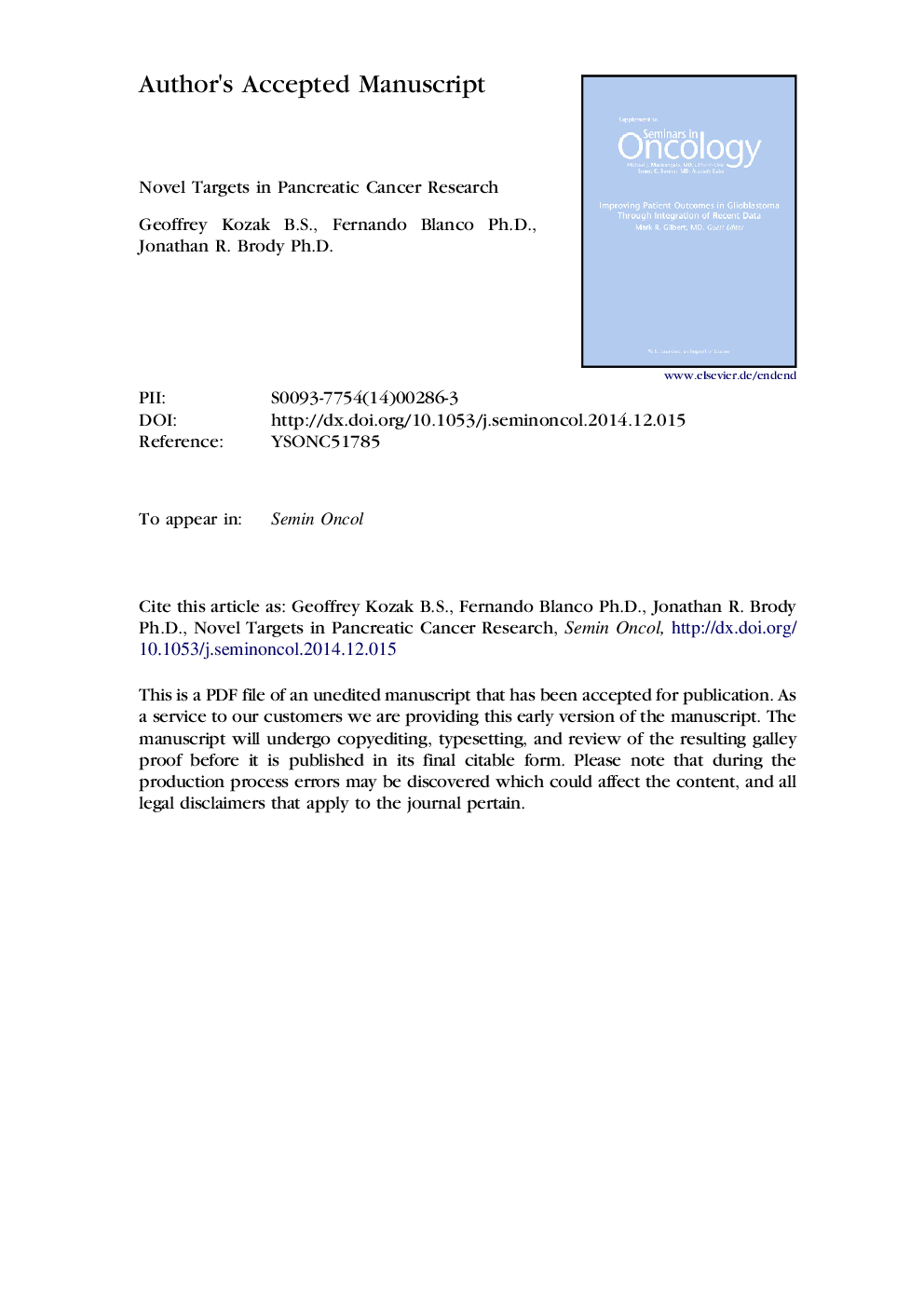| Article ID | Journal | Published Year | Pages | File Type |
|---|---|---|---|---|
| 2161867 | Seminars in Oncology | 2015 | 29 Pages |
Abstract
The initiation and progression of pancreatic ductal adenocarcinoma (PDA) occurs as a result of molecular alterations that typically result in fluctuations of transcription, protein expression, and ultimately dysregulated signaling pathways. For example, PDA is driven by key activating, gain-of-function mutations in proto-oncogenes (eg, K-Ras) along with loss of function of tumor suppressor genes (eg, p16, SMAD4). With the advent of whole-exome sequencing of PDA genomes, several key genetic alterations have been identified as drivers of PDA. While these findings have led to groundbreaking discoveries in the etiology of PDA, they have failed to provide feasible, targetable therapeutic approaches. Additionally, recent advances in PDA research have uncovered the role of the tumor microenvironment (the non-epithelial tumor cells) in PDA progression by promoting potent, acute changes in gene expression. Herein, this chapter is aimed at discussing the key genetic and non-genetic mechanisms responsible for PDA initiation and progression. Thus based on these mechanisms, we will put forth investigated and novel therapeutic targets in PDA.
Related Topics
Life Sciences
Biochemistry, Genetics and Molecular Biology
Cancer Research
Authors
Geoffrey Kozak, Fernando F. Blanco, Jonathan R. Brody,
